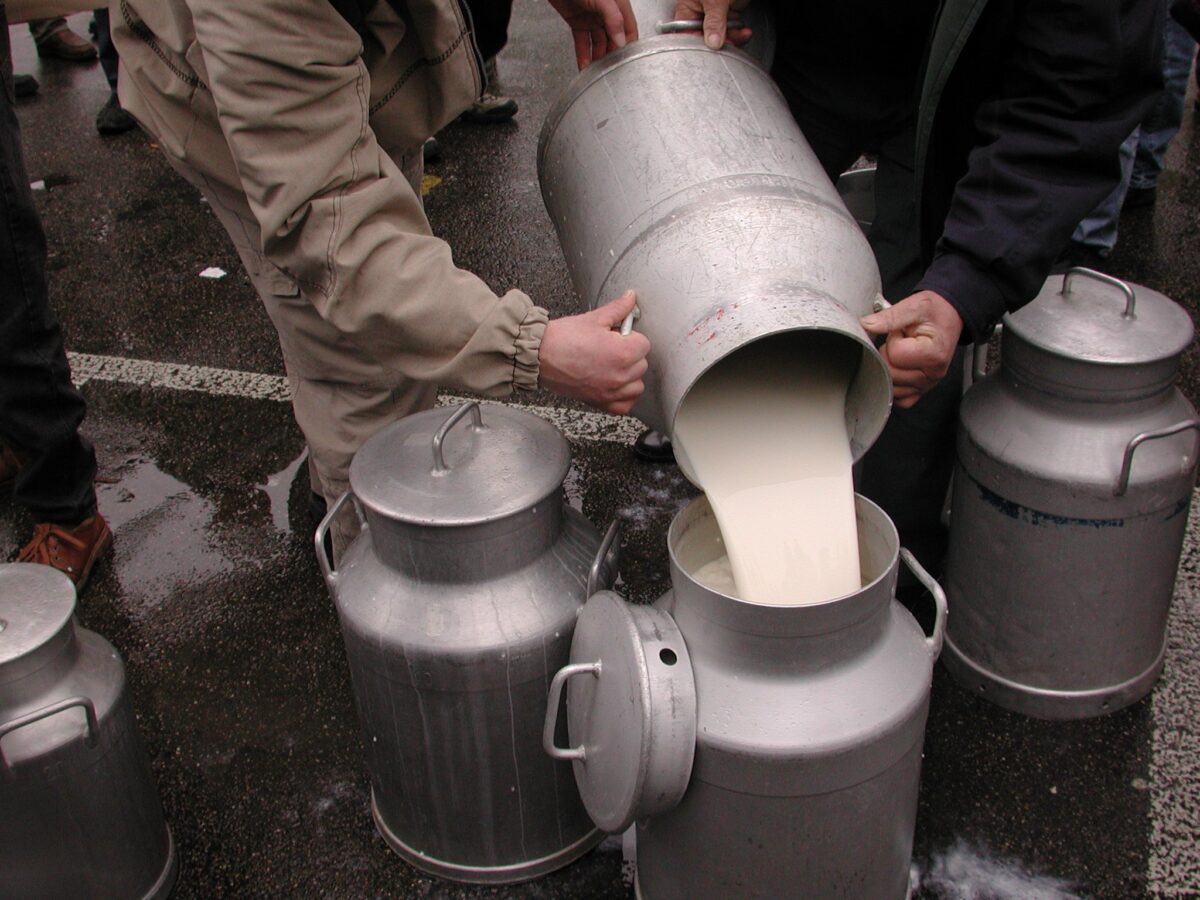Swiss milk – indispensable for the agriculture industry
Milk production is the most important branch of Switzerland’s agriculture industry. That’s because we have a lot of meadowland and thus plenty of fodder for cows. There are almost 20,000 dairy farmers in Switzerland who keep a total of around 560,000 cows that produce a combined volume of almost 4 billion kilograms of milk per annum. The number of dairy cows has decreased in recent years, but milk production has held steady because the milk yield per cow has increased at the same time.
The yield per cow amounts to around 7,000 kilograms of milk per annum. A Swiss cow gives 20 to 35 kilograms of milk per day, depending on its breed and age.
Milk is a natural beverage that contains numerous beneficial ingredients. It is composed of around 87% water, 3.3% protein, 4% milk fat and 4.7% lactose. It also contains minerals like calcium, potassium, iodine, magnesium and iron, as well as 15 different vitamins. Milk processors today supply a wide range of lactose-free dairy products for people with lactose intolerance.
Milk can be used to make numerous products. In Switzerland, cheese production is especially important. Milk processors also produce drinking milk, butter, cream, yogurt and other dairy specialties. Part of the milk is processed into preserved milk products such as condensed milk or powdered milk, for example.


